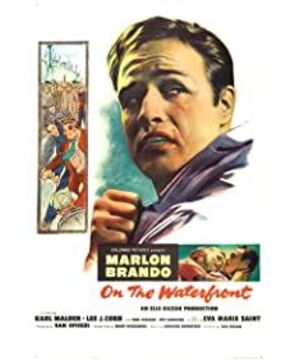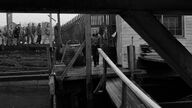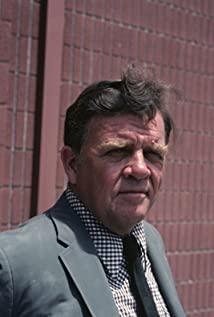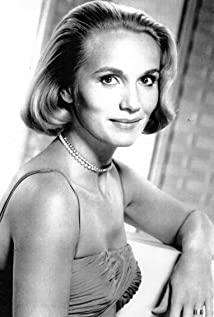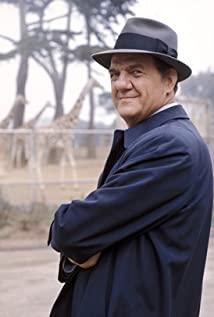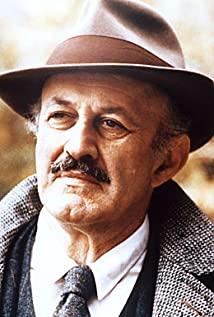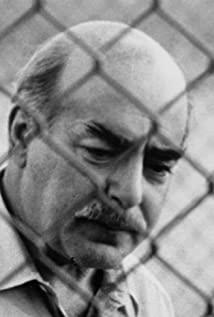Controlling the workers, putting a tight curse on the workers, so that they dare not easily resist, the fundamental purpose is to protect the dirty exploiting interests of the upper ranks of the trade union-these upper ranks deduct money from each worker in the name of "contributions." The trade unions, which were supposed to protect the interests of workers, actually exploited workers like capitalists, and ordinary people can only leave them at their mercy. Otherwise, if you resist a little bit, you may be deprived of your job opportunities, or you may lose your life. Ordinary people can only live under this kind of oppression and survive. How can they break this vicious circle of interests?
At the beginning of the film, a worker (Joy) who was going to prove their crimes to the court was booby-trapped. Everyone docker knows what's going on, but no one comes forward. They have become accustomed to living in such an environment, just asking for their own food and clothing. Regarding this crime, they just think it’s a matter outside the window. As long as they follow the set set by the gang and pay the money on time, they will be fine, gang Only deal with the nosy people, as long as you don't be the nosy people. But what the nosy people are striving for is a fairer treatment for all workers!
Isn't this universal human nature? People seldom take actions that cause immediate harm to themselves for the sake of illusory justice and justice. Even if this kind of morality and justice is realized, it can produce tangible benefits for themselves. This conservative human nature makes people accustomed to numbness and walking away when facing misfortune and injustice. Only a handful of people have the courage to be the first righteous, and most people will not even make a gesture of solidarity. Therefore, the warrior who is willing to commit difficulties with his own body to break the vicious circle of interests can only be a lonely tragic hero most of the time. And like the deep throat in the Watergate incident, he can expose the truth and go to war against the president, but he can conceal his identity and retreat all over, which is a good ending.
The masses, most of the time, are just a group of people who are willing to accept things because of people. If he understands this and can devote himself without hesitation, then he is truly a noble person.
However, the struggle is not only the rare idealists who uncovered the shady, but it may also be some ordinary people with courage. If the former comes from reason, then the latter is often driven by emotion.
The protagonist Terry in the film is the latter. He was originally a good-natured young man. At first, he was used to lure his friend Joey to the murder, but when he knew the whole story, he was stubborn and struggling with his heart. His sister Yiti fell in love, which exacerbated the self-blame of his conscience. Under the guidance of the priest, he planned to come out to prove the gang’s crimes. His brother Charlie was not able to persuade him, so he was brutally killed by the gang. Terry wanted to seek revenge. In the end, the priest was led to the court to testify against the gang's crimes.
But because of his betrayal, Terry was deprived of his job opportunities by the still existing gangs and unions until he declared war on the unions on his own, the union masses chose to stand by his side, and the gangs and unions were abandoned.
The ending of the film seems to tell people that only by establishing a clean and fair trade union can the interests of workers be protected. But where to find motivation to break the stubborn interest structure is a question left for people to think about in the film. What is the least costly and most sensitive method? In the face of the silent majority, can only the sacrifice of the warrior promote social justice? Perhaps what is needed is the freedom to criticize and comment, the freedom to denounce current malpractices and avoid fear. A sane society should guarantee this, because only in this way, can we get rid of the parasitic tumors on the body of society at a relatively small cost, so that society can have a better tomorrow.
View more about On the Waterfront reviews


